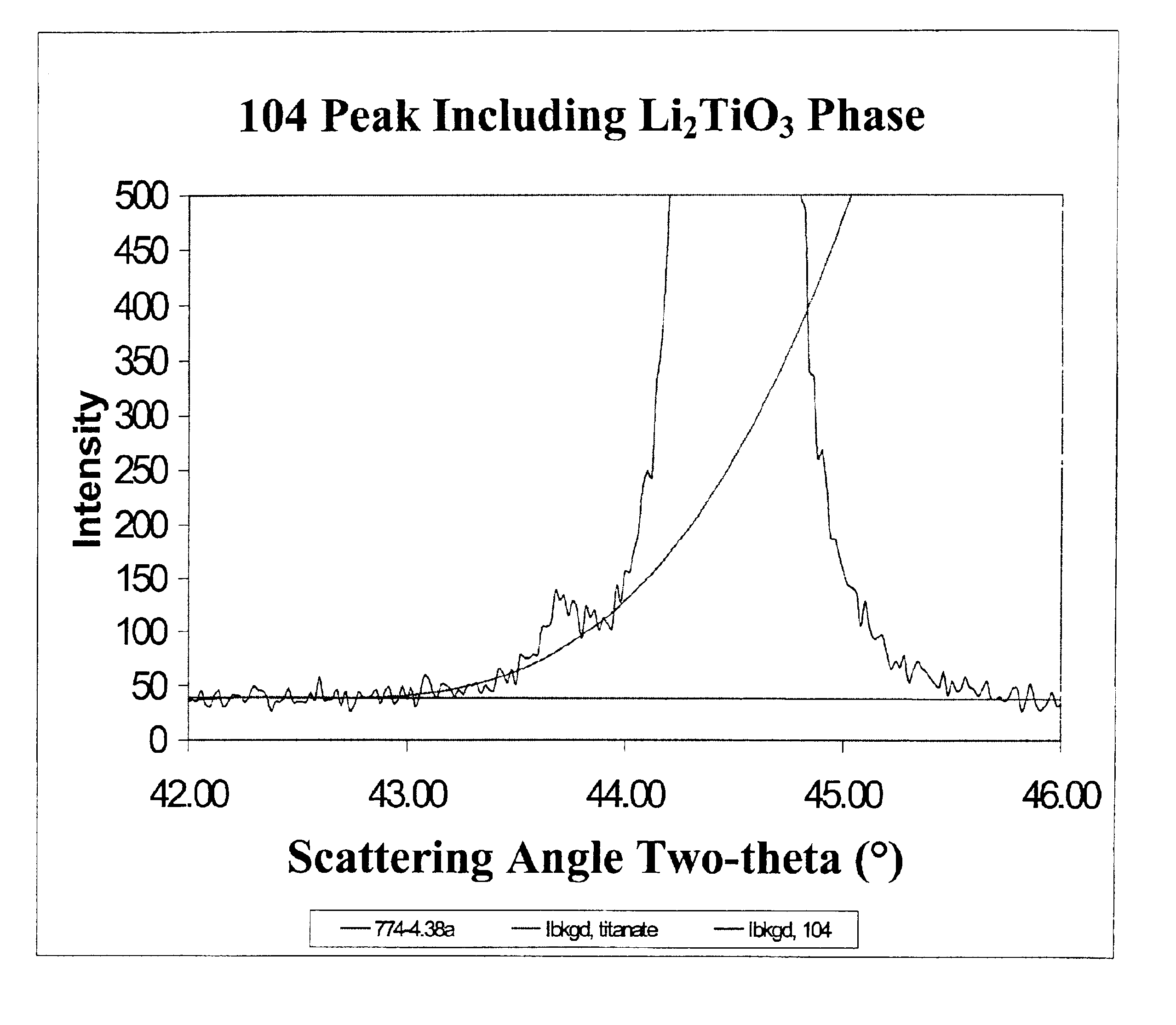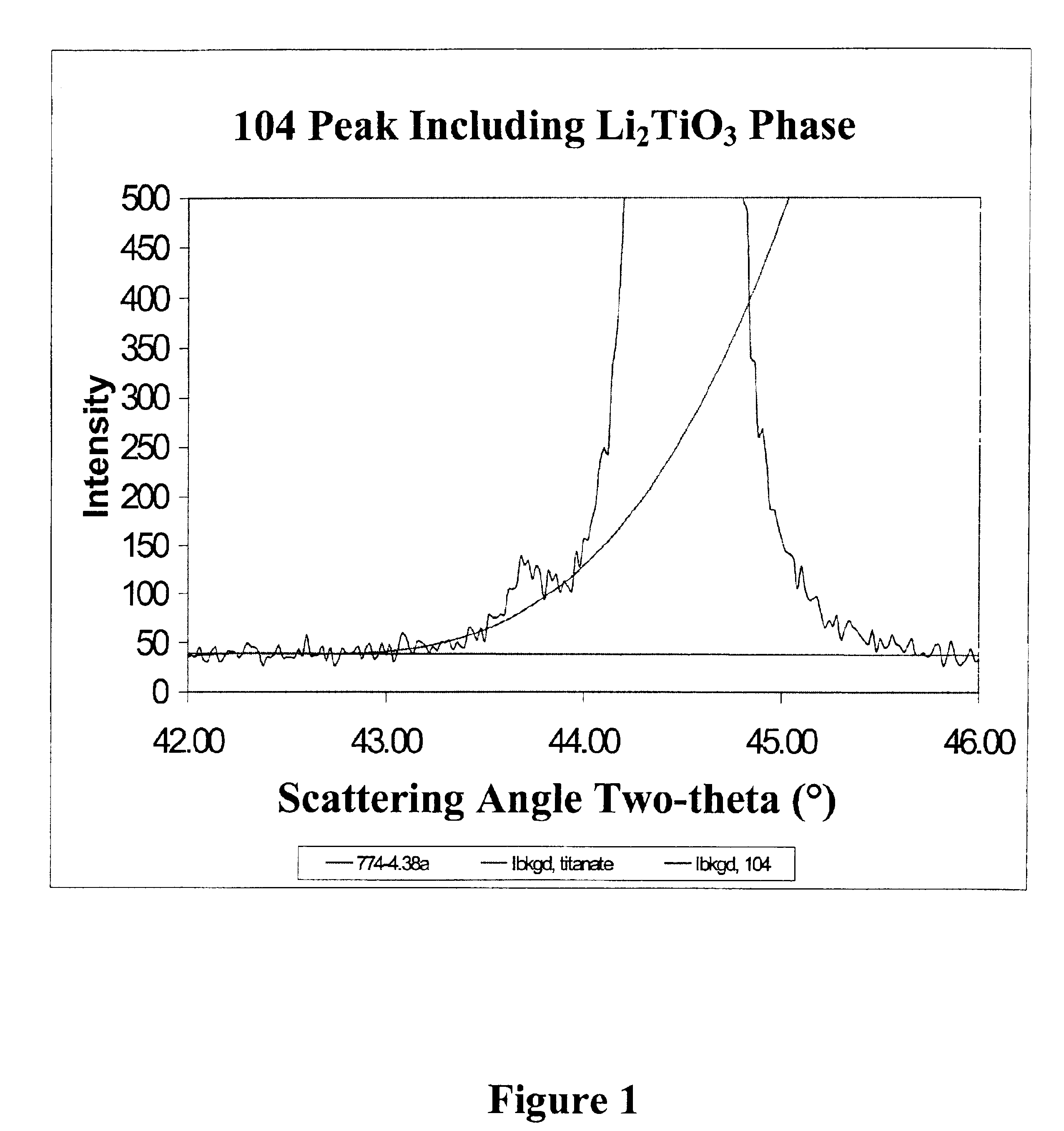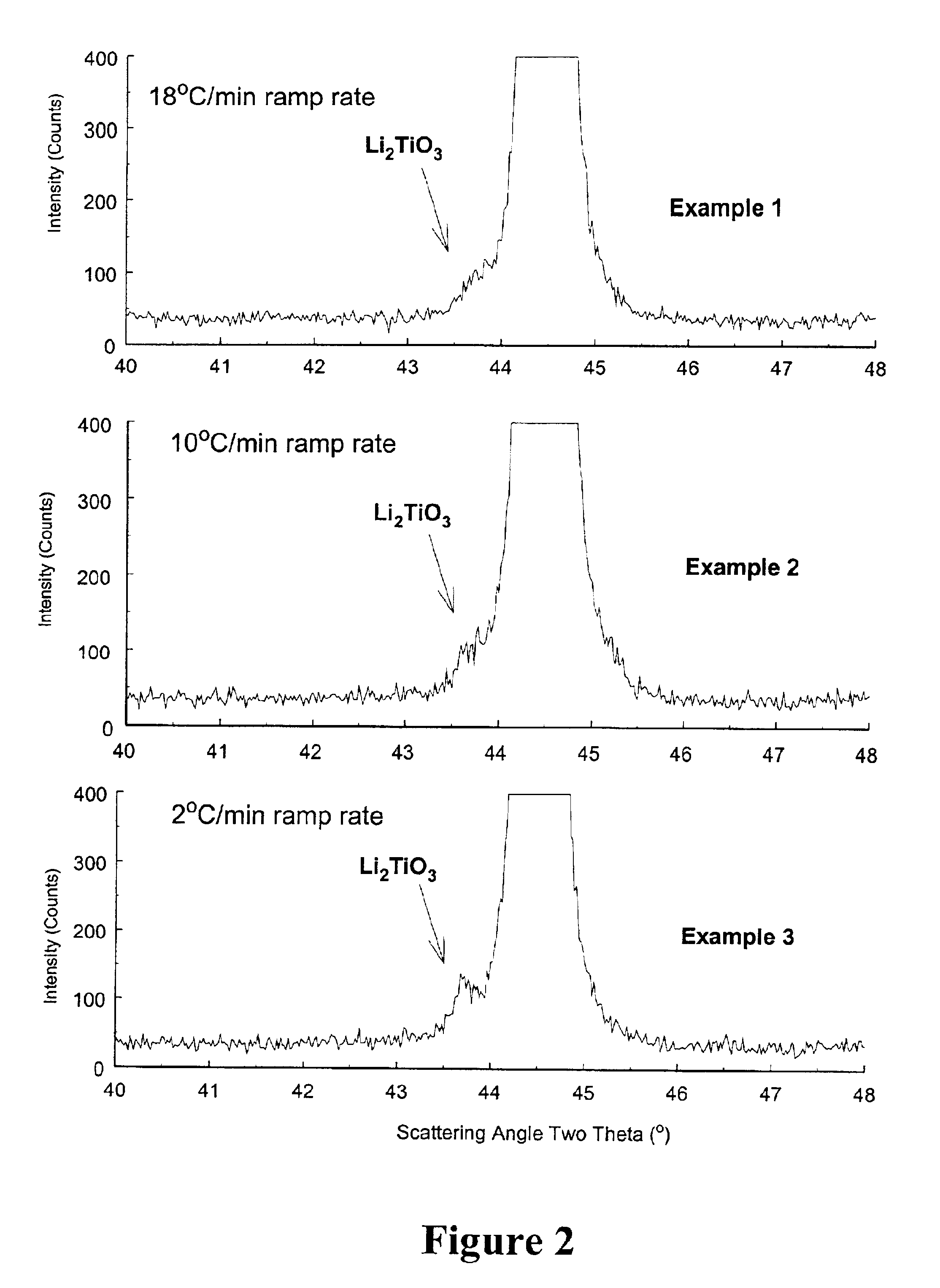Positive electrode active materials for secondary batteries and methods of preparing same
- Summary
- Abstract
- Description
- Claims
- Application Information
AI Technical Summary
Benefits of technology
Problems solved by technology
Method used
Image
Examples
examples 1-3
Stoichiometric amounts of NiO, LiOH.H2O, Co3O4, TiO2 and Mg(OH)2 with 10 molar % excess Li were thoroughly mixed to target the production of LiNi0.7Co0.2Ti0.05Mg0.05O2. The mixture was fired in air at a maximum firing temperature of about 800° C. for 20 hours, then cooled at a rate of 1° C. / min to 500° C. followed by natural cooling to room temperature. The average ramp-up rate from 500° C. to the maximum firing temperature was 18° C. / min, 10° C. / min, and 2° C. / min for Examples 1, 2 and 3, respectively.
FIG. 2 illustrates the x-ray diffraction spectra for the three examples. The peak representing Li2TiO3 is located in the spectra at the foot of the 104 peak of the LiNi0.7Co0.2Ti0.05Mg0.05O2 main phase. FIG. 3 shows the amount of Ti in the separate Li2TiO3 phase, as determined by powder x-ray diffraction, as a function of the ramp rate. Clearly, a faster ramp rate favors increased incorporation of Ti in the LiNi0.7Co0.2Ti0.05Mg0.05O2 main phase while slower ramp rates favor incorporat...
PUM
 Login to View More
Login to View More Abstract
Description
Claims
Application Information
 Login to View More
Login to View More - R&D
- Intellectual Property
- Life Sciences
- Materials
- Tech Scout
- Unparalleled Data Quality
- Higher Quality Content
- 60% Fewer Hallucinations
Browse by: Latest US Patents, China's latest patents, Technical Efficacy Thesaurus, Application Domain, Technology Topic, Popular Technical Reports.
© 2025 PatSnap. All rights reserved.Legal|Privacy policy|Modern Slavery Act Transparency Statement|Sitemap|About US| Contact US: help@patsnap.com



